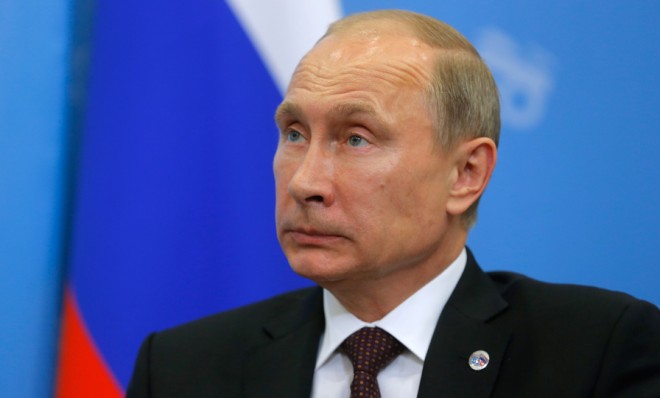Vladimir Putin may have won big on Syria
But if he's not careful he could find himself painted into a corner

A free daily email with the biggest news stories of the day – and the best features from TheWeek.com
You are now subscribed
Your newsletter sign-up was successful
Before this week, it looked like Russia would be watching from the sidelines as the United States tried to rally international support for a strike against Syria.
Then came Secretary of State John Kerry's seemingly off-the-cuff suggestion that Assad "turn over every single bit of his chemical weapons to the international community in the next week" to avoid an attack — a proposal Russia and Syria unexpectedly jumped on, setting off a chain of events that has put a strike on hold and left President Obama scrambling for a response.
Putin's bold move has so far paid off, making him look like a decisive leader who stepped in and stopped an unnecessary war.
The Week
Escape your echo chamber. Get the facts behind the news, plus analysis from multiple perspectives.

Sign up for The Week's Free Newsletters
From our morning news briefing to a weekly Good News Newsletter, get the best of The Week delivered directly to your inbox.
From our morning news briefing to a weekly Good News Newsletter, get the best of The Week delivered directly to your inbox.
"Putin and [Syrian President Bashar al-]Assad have totally won this round," Philippe Moreau-Defarges, a foreign policy expert at the French Institute of International Relations in Paris, tells Bloomberg. He claims that Putin's plan is to "push off the talk of strikes for as long as possible because the longer he pushes them off, the less likely they are."
Instead of appearing irrelevant, Putin has kept his ally Syria alive for another day. And Syria is home, coincidentally enough, to Russia's only military base outside the former Soviet Union. If the plan works, Putin then "becomes a necessary player in Middle East politics," Michael Corgan, a professor of international relations at Boston University, tells USA Today, "which is something he wants, to enhance Russia's place in determining world affairs."
Not only that, he has flipped the power dynamic with the United States, argues The Weekly Standard's Lee Smith, coming out on top after Obama's much-publicized "reset" of U.S.-Russian relations at the beginning of his term:
Reset with Russia was originally a strategic priority for the Obama administration because it saw Moscow as the key to getting Iran to come to the negotiating table. Putin, from the White House’s perspective, was destined for the role of junior partner. Now Putin has turned "reset" upside down. By helping Obama out of a jam with Syria, Putin has made himself the senior partner to whom the White House is now beholden. [The Weekly Standard]
Putin also gets to enjoy the view from the moral high ground, after years of obstructing an international response to a conflict that has killed 100,000 people. Now that the issue is likely going back to the United Nations, Putin can "claim to be upholding the U.N. system and international law in the teeth of reckless American unilateralism," writes Simon Tisdall at The Guardian.
A free daily email with the biggest news stories of the day – and the best features from TheWeek.com
And while looking like a "global peacemaker," writes Bill Keller at The New York Times, Putin has "assured continued Syrian demand for Russian-made 'conventional' ordnance, so that the extermination of Syrian civilians can proceed by marginally less inhumane means."
The only downside for Putin? This entire deal could fall apart.
Russia has already complicated matters by demanding that the United States "renounce the use of force" before negotiations begin, something the White House isn't likely to do. Russia is also arguing with France over whether the International Criminal Court will have jurisdiction to punish those responsible for the alleged chemical weapons attack near Damascus that killed more than 1,400 people.
Slate's Fred Kaplan says Putin is "wriggling in a trap of his own making," claiming that if "Russia backs away from a real deal, after exciting so many players to its possibilities, Obama could emerge with his airstrikes gaining greater support — at home and abroad."
Keith Wagstaff is a staff writer at TheWeek.com covering politics and current events. He has previously written for such publications as TIME, Details, VICE, and the Village Voice.
-
 What to know before filing your own taxes for the first time
What to know before filing your own taxes for the first timethe explainer Tackle this financial milestone with confidence
-
 The biggest box office flops of the 21st century
The biggest box office flops of the 21st centuryin depth Unnecessary remakes and turgid, expensive CGI-fests highlight this list of these most notorious box-office losers
-
 The 10 most infamous abductions in modern history
The 10 most infamous abductions in modern historyin depth The taking of Savannah Guthrie’s mother, Nancy, is the latest in a long string of high-profile kidnappings